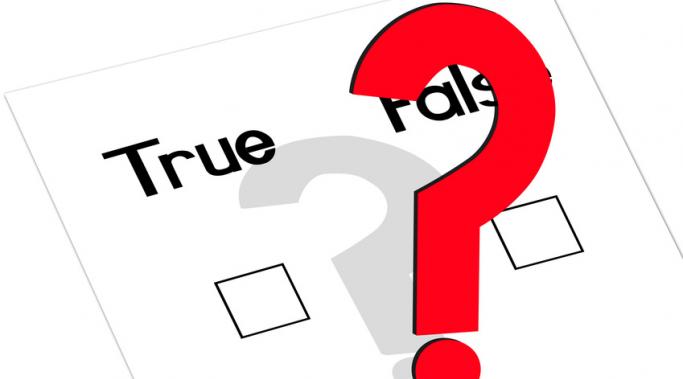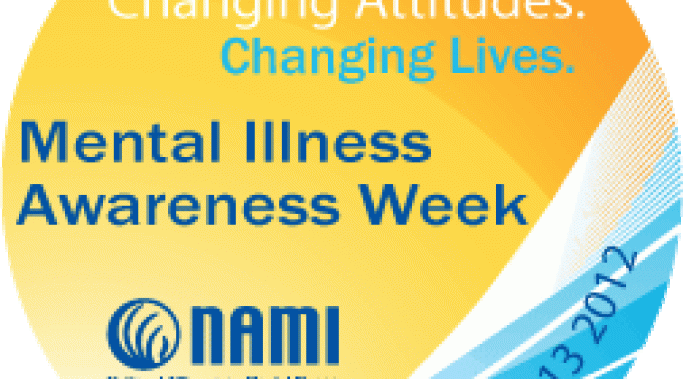There is this myth of a "nervous breakdown." We see this term in news report, press releases and even in our own families -- "Oh, you know Aunt June? She suffered a nervous breakdown." But what are people talking about when they say someone had a nervous breakdown. Clearly, something happened but the truth of the matter the idea of a "nervous breakdown" is a myth.
Denial
I'm quite convinced wearing rose-colored glasses doesn't help a mental illness. In fact, I'm pretty sure that wearing rose-colored glasses doesn't help most people at all. When I watch people with them on it actually drives me bonkers. Here's why rose-colored glasses don't help mental illness and definitely don't work for me.
I have a question: why is it that some people can’t accept the evidence of mental illness? I mean, it’s not like we’re basing our knowledge on one or two studies – we’re basing our knowledge of mental illness on study after study after study. First there were observational studies, then familial ones, then genetic and then brain-mapping ones. It’s not a tiny amount of data we have here, there’s oodles of it. And yet, people are prepared to say that all the science is flawed and that mental illness doesn’t exist or that the effects of mental illness aren’t real? I just don’t get it.
It’s time to dispel another myth that ticks me right off. This particular myth is that mental illness is but a symptom of childhood abuse. People who think this claim that simply by getting therapy and dealing with this abuse, the mental illness symptoms will go away. Bipolar – cured! Yay!
This, of course, is absolute nonsense.
I have had a lot of bad bipolar days in my life. Days when I was incapacitated. Days when I couldn’t make food for myself. Days when I couldn’t work. Days when I couldn’t talk to anyone. Days when I just couldn’t function.
On these days, I’m sick. And in some regards, it’s a type of sickness that is like many others. I feel like trash, I don’t want to move from the couch and everything hurts – that could describe a cold or the flu as well. But as it happens, it also described a bad day for depression or bipolar disorder.
But here’s the thing, when someone calls and asks if I want to have coffee, saying I’m too depressed isn’t seen as acceptable. That’s seen as weakness. That’s seen as something wrong with me. Whereas, if I said I was sick with a cold, that would be alright, because, after all, everyone gets colds and when they get them, it’s okay not to feel like socializing.
And I can’t tell you the number of days I’ve said I was sick with the flu, or a cold, or a stomach bug or anything but sick with bipolar. But really, that’s what I am.
It is an unfortunate reality that some people with bipolar disorder refuse help. And it is an unfortunate reality that this deleteriously affects those in their lives. And it is unfortunate that some people are tied to those that refuse help, such as in the case of a marriage or partnership. So the question is, if you are married to a person with bipolar who refuses to get help for their illness, should you leave them?
I first started receiving psychiatric treatment when I was 20 years old. At that time, I was pretty separated and not very attached to my parents. Nevertheless, they and their opinions did have an impact on me. And when I told my mother I had bipolar disorder her reaction was akin to not believing me. She was entirely ignorant about mental illness (and to be fair, I had been too) and mental illness treatment.
She, naturally, wanted me to treat this problem with herbs and other nonsense. And in spite of the fact that I was detached from this woman, her lack of support affected me. At the time, all my energy was being used to fight bipolar disorder, and now I had to fight her too. It was kicking me while I was down. Way, way down. And while she didn’t see it that way, I can attest to the fact that it sure as heck felt that way.
But luckily for me, I was not under her care. Luckily, even though she eventually pressured me into trying out alternative nonsense, I still got the real, medical help I needed. Had I have been younger, this might not have been the case.
And unfortunately, some youth are in this position right now. Some youths feel they have a mental illness and are in the charge of their parents’. And some youths have even told their parents that only to be met with a wall of disbelief or told they’re “overly dramatic.”
I feel for these youths. They’re in a really tough spot. But there are things youths can do even if a parent doesn’t believe their son or daughter has a mental illness and refuses to support their desire to get help.
There is a type of denial of mental illness that goes beyond mere psychological denial – this is called anosognosia and it is the clinical term for the lack of insight required to understand you have a mental illness. Anosognosia is a neurological disorder thought to be caused by abnormalities in the frontal lobes (Impaired Awareness of Illness (Anosognosia): A Major Problem for Individuals with Bipolar Disorder).
Come out, come out, wherever you are!
Yes, it’s Mental Illness Awareness Week again and if you’re here, at HealthyPlace, you probably already got that memo. But you might be wondering what to actually do to promote mental illness awareness. No art exhibit, educational session or candlelight vigil in your neighbourhood? Don’t worry – anyone can promote mental illness awareness just by talking about mental health.
One of the dumbest things I’ve ever heard is of doctors not giving their patients their diagnoses. That’s right – the patient sees the doctor, the doctor does a full assessment, the doctor reaches a conclusion, but keeps it a big secret like an upcoming birthday party.
This is an example of parental doctoring and completely insults the patient.









![MP900432989[1]](https://www.healthyplace.com/sites/default/files/styles/blog_listing/public/uploads/2012/09/MP9004329891-682x1024.jpg?itok=NpPW8BSS)